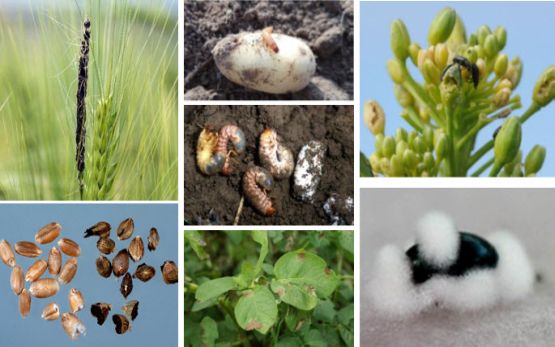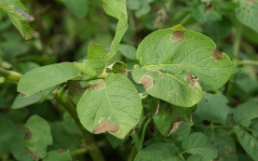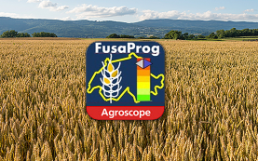The main objective of this research is the targeted use of naturally occurring antagonists to control insects and pathogens in arable crops and grassland, the prevention of diseases in organic cereal seeds as well as the replacement of copper for the control of potato late blight.
The focus of the biological control of insects in arable crops and grassland lies in the study of the biology of antagonists and the development of products based on entomopathogenic fungi to be applied against root insects (wireworms, grubs of cock-, summer and garden chafer) and insects that feed above-ground, such as pollen or flea beetles. This involves the development of stable formulations and the optimisation of the application strategy.
To obtain organic cereal seed free of diseases, seed dressings agents based on botanicals are tested and developed. Suitable formulation and application methods are investigated in laboratory, climate chamber and field experiments. Seed-borne pathogens such as the bunt fungi (common bunt, dwarf bunt and loose smut) in wheat, spelt and barley are harmful pathogens with a high spreading potential. In cereal crops, they form bunt balls or smutted spikes instead of grains, which are partially toxic to humans and animals. Furthermore, research is carried out on the practical implementation of warm water and other thermal treatments, which substantially reduce the loose smut pathogen, lodged deep in the embryo.
In potato production, late blight is the most important disease worldwide. In organic farming, direct control is currently only possible with repeated application of environmentally harmful copper fungicides. In order to replace these copper products, the effect of botanicals is tested. In addition, potato producers utilise the decision support system PhytoPRE – developed by Agroscope – which allows them to apply copper and other fungicides, as well as potential new alternatives, in a targeted and effective manner.
These projects provide an important contribution to environmentally friendly and economically attractive agricultural production. Furthermore, they help to maintain and expand the supply of Swiss produced food and feed.








